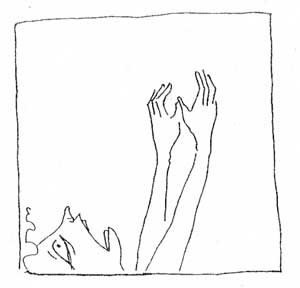“Failing to Fall”
The narrator of Chaucer’s poem, “The Book of the Duchess,” cannot sleep. As his fitful thoughts come and go, he lies awake. He hasn’t slept for so long, he fears he may die of insomnia. But what is the reason for his sleeplessness? “Myselven can not telle why,” he says. The narrator of Chaucer’s poem, “The Book of the Duchess,” cannot sleep. As his fitful thoughts come and go, he lies awake. He hasn’t slept for so long, he fears he may die of insomnia. But what is the reason for his sleeplessness? “Myselven can not telle why,” he says.
The English expression “to fall asleep” is apt because the transition between waking and sleeping is a gradual drop from one state of being into another, a giving up of full self-consciousness for unconsciousness or for the altered consciousness of dreams. Except in cases of exhaustion or with the aid of drugs, the movement from one world to another is not instantaneous; it takes a little time. Full waking self-consciousness begins to loosen and unravel.
When I have insomnia, I cannot drop into the zone between waking and sleeping — this half-dreaming, half-aware state of words and pictures does not arrive. During this interval, I have often had the illusion that I am walking. I feel my foot slip off a curb and fall, but before I hit the pavement, I feel a jerk and am fully awake again. I also watch brilliant mutating spectacles on my closed eyelids, so-called hypnogogic hallucinations, that usher me into sleep. Read the rest of the post.
